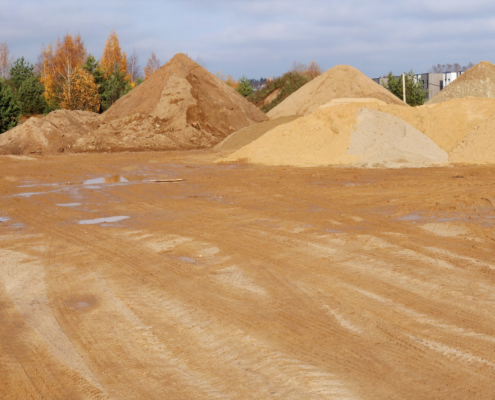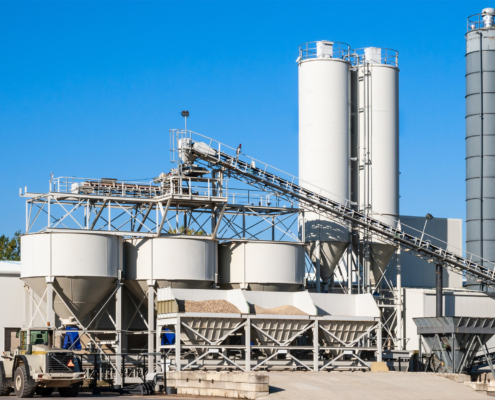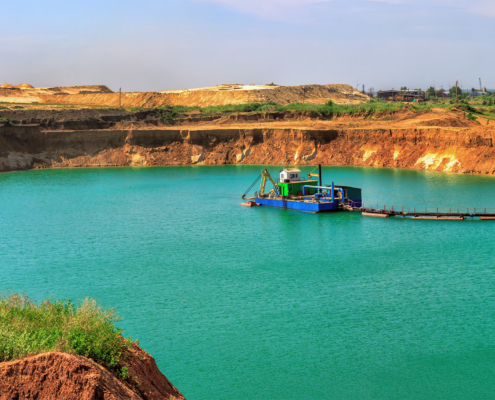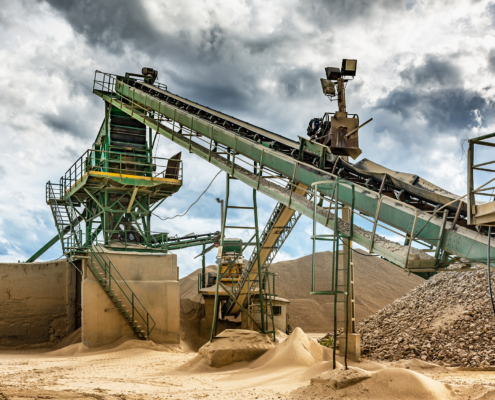 https://pontotocsandandstone.com/wp-content/uploads/2025/06/How-to-Choose-Between-Uncoated-and-Resin-Coated-Frac-Sand-for-Your-Operations.jpg
1250
2000
AbstraktMarketing
/wp-content/uploads/2021/08/Pontotoc-White-Logo.png
AbstraktMarketing2025-06-26 13:10:012025-07-06 16:14:37How to Choose Between Uncoated and Resin-Coated Frac Sand for Your Operations
https://pontotocsandandstone.com/wp-content/uploads/2025/06/How-to-Choose-Between-Uncoated-and-Resin-Coated-Frac-Sand-for-Your-Operations.jpg
1250
2000
AbstraktMarketing
/wp-content/uploads/2021/08/Pontotoc-White-Logo.png
AbstraktMarketing2025-06-26 13:10:012025-07-06 16:14:37How to Choose Between Uncoated and Resin-Coated Frac Sand for Your OperationsThe Versatile Rock: Exploring Limestone Uses in Various Industries
Limestone, a seemingly ordinary rock, holds extraordinary significance in modern society. Its versatile nature and wide-ranging applications across numerous industries often go unnoticed by many. However, looking deeper into its uses reveals a mineral that plays a vital role in agriculture, manufacturing, environmental remediation, healthcare, and beyond.
In this article, we will explore the extensive limestone uses and highlight its indispensable role in shaping our everyday lives. By understanding its significance, we can foster discussions about sustainable resource management practices and appreciate the importance of this remarkable mineral.
Agricultural Applications
One of the primary limestone uses lies in agriculture, where it serves as a crucial component in soil amendment. Agricultural lime, a finely ground limestone product, neutralizes acidic soils, enhancing soil fertility and promoting optimal plant growth. By raising the pH level of acidic soils, limestone facilitates the release of essential nutrients such as nitrogen, phosphorus, and potassium, making them more readily available to plants. Moreover, limestone helps to improve soil structure, water retention, and overall crop productivity. Without limestone, agricultural yields would suffer, impacting food production and global food security.
Manufacturing Sector
In the manufacturing sector, limestone plays a pivotal role in various processes, particularly in the production of cement, steel, and glass. Cement, a fundamental building material, relies on limestone as a primary ingredient. When heated in a kiln along with other materials such as clay, limestone undergoes a chemical transformation, forming clinker, which is then ground into fine powder to produce cement. Similarly, limestone is used in the steel industry as a fluxing agent during the steelmaking process, aiding in removing impurities and achieving desired chemical compositions. Additionally, limestone is a key component in glass production, where it acts as a flux to lower the melting point of silica, facilitating the glassmaking process. Without limestone, the manufacturing sector would struggle to meet the growing demand for essential materials and infrastructure.
Environmental Remediation
Limestone’s remarkable properties extend beyond industrial applications to environmental remediation efforts. One notable example is its use in mitigating the effects of acid mine drainage (AMD). AMD, a byproduct of mining activities, often results in the release of acidic water containing high concentrations of heavy metals, posing significant environmental hazards to aquatic ecosystems. Limestone-based treatments, such as passive treatment systems and limestone drains, are employed to neutralize the acidity of AMD, precipitating metal ions and restoring water quality. Additionally, limestone is utilized in flue gas desulfurization (FGD) systems to remove sulfur dioxide (SO2) emissions from industrial exhaust gases, thereby reducing air pollution and mitigating the impacts of acid rain. Through these applications, limestone contributes to environmental sustainability and the preservation of natural resources.
Healthcare Sector
In the healthcare sector, limestone finds applications in pharmaceuticals and medical treatments. Calcium carbonate, derived from limestone, serves as a key ingredient in antacids and calcium supplements due to its ability to neutralize stomach acid and provide essential calcium ions. Limestone-based products such as dental pastes and toothpaste formulations utilize calcium carbonate for its abrasive properties, aiding in the removal of plaque and maintaining oral hygiene. Limestone-based mineral supplements are used in animal feed to support bone development and overall health in livestock. Limestone underscores its importance in the healthcare industry by supporting human health and well-being.
Source the best limestone in the industry through Pontotoc Sand & Stone today.
Additional Uses
Beyond these sectors, limestone finds applications in diverse fields such as water treatment, construction, and landscaping. In water treatment, limestone is used to adjust pH levels, remove impurities, and enhance drinking water quality. In construction, limestone serves as a building material for structures ranging from residential homes to iconic landmarks. Its durability, aesthetic appeal, and versatility make it a preferred choice for architects and builders alike. Limestone is also utilized in landscaping projects for features such as retaining walls, pathways, and decorative elements, adding aesthetic value to outdoor spaces.
The Benefits of Limestone
Considering limestone for a new construction material? You can’t underestimate the many limestone uses and benefits:
- Soil Amendment: Limestone enhances soil fertility by neutralizing acidity, improving pH levels, and promoting nutrient availability for optimal plant growth.
- Building Material: Limestone serves as a durable and aesthetically pleasing construction material for various structures, including residential homes, commercial buildings, and iconic landmarks.
- Industrial Applications: In manufacturing, limestone is essential for producing cement, steel, and glass, supporting infrastructure development and industrial processes worldwide.
- Environmental Remediation: Limestone-based treatments mitigate acid mine drainage, improve water quality, and reduce air pollution through flue gas desulfurization, contributing to environmental sustainability.
- Health Benefits: Calcium carbonate derived from limestone is used in pharmaceuticals, supplements, and dental care products, supporting bone health, oral hygiene, and overall wellness.
- Agricultural Enhancement: Agricultural lime derived from limestone improves soil structure, water retention, and crop productivity, ensuring sustainable agricultural practices and food security.
- Water Treatment: Limestone is utilized in water treatment processes to adjust pH levels, remove impurities, and enhance the quality of drinking water, safeguarding public health and environmental integrity.
- Animal Nutrition: Limestone-based mineral supplements are used in animal feed to support bone development, reproductive health, and overall nutrition in livestock, promoting animal welfare and productivity.
- Versatility: Limestone finds applications in diverse industries, including construction, manufacturing, agriculture, healthcare, and environmental management, showcasing its versatility and indispensability in modern society.
- Economic Contribution: The limestone industry generates significant economic value through employment opportunities, infrastructure development, and contributions to various sectors, driving economic growth and prosperity in communities worldwide.
Signs to Use Limestone in Your Operations
If you notice any of the following signs in your operations, be sure to contact a provider like Pontotoc for limestone uses in your next project:
- Soil pH testing indicates acidic conditions, hindering plant growth and nutrient uptake
- Decreased agricultural yields despite proper fertilization and irrigation practices
- Corrosion of metal equipment and infrastructure due to acidic water runoff
- Elevated levels of sulfur dioxide emissions in industrial exhaust gases contribute to air pollution
- Formation of acid mine drainage in mining operations, endangering aquatic ecosystems
- Increased instances of dental erosion and acid reflux among workers or residents in the area
- Difficulty in achieving desired chemical compositions in cement or steel production processes
- Reduced water quality in natural water bodies, evidenced by low pH levels and high metal concentrations
- Presence of soil-borne diseases or pests thriving in acidic soil conditions
- Degradation of historical limestone structures or monuments due to environmental factors like acid rain
- Persistent odors or tastes in drinking water indicate the presence of impurities or contaminants that limestone can help neutralize
- Noticeable deterioration of concrete structures due to the ingress of acidic substances, highlighting the need for limestone-based repair or reinforcement
- Increased frequency of respiratory issues among workers exposed to high levels of sulfur dioxide emissions, necessitating the implementation of flue gas desulfurization systems utilizing limestone
- The poor performance of water treatment systems in maintaining desired water quality standards suggests the need for pH adjustment using limestone
- Excessive leaching of heavy metals from soil into groundwater poses risks to human health and ecosystems and requires remediation with limestone-based solutions
- Struggles in maintaining the health and productivity of livestock due to mineral deficiencies exacerbated by acidic soil conditions, prompting supplementation with limestone-based feed additives
Partner With Pontotoc for the Best Limestone Material in the Industry
Partner with us at Pontotoc for unparalleled access to the finest limestone materials in the industry. With our expertise and commitment to quality, we guarantee superior products for your needs. Experience the difference with Pontotoc today.
Share This Post
More Like This
 https://pontotocsandandstone.com/wp-content/uploads/2025/06/How-to-Choose-Between-Uncoated-and-Resin-Coated-Frac-Sand-for-Your-Operations.jpg
1250
2000
AbstraktMarketing
/wp-content/uploads/2021/08/Pontotoc-White-Logo.png
AbstraktMarketing2025-06-26 13:10:012025-07-06 16:14:37How to Choose Between Uncoated and Resin-Coated Frac Sand for Your Operations
https://pontotocsandandstone.com/wp-content/uploads/2025/06/How-to-Choose-Between-Uncoated-and-Resin-Coated-Frac-Sand-for-Your-Operations.jpg
1250
2000
AbstraktMarketing
/wp-content/uploads/2021/08/Pontotoc-White-Logo.png
AbstraktMarketing2025-06-26 13:10:012025-07-06 16:14:37How to Choose Between Uncoated and Resin-Coated Frac Sand for Your Operations
How Frac Sand Storage Affects the Quality and Efficiency of Your Fracing Operations
Tier 1 Frac Sand
Reasons Why Locally-Sourced Frac Sand Saves You Money and Time
Tier 1 Frac Sand
The Role of Frac Sand in Tight Oil Reservoirs: Key Considerations
Tier 1 Frac Sand
The Role of Frac Sand in Tight Oil Reservoirs: Key Considerations
Tier 1 Frac Sand
Frac Sand 101: Everything You Need to Know Before Buying
Tier 1 Frac Sand
The Role of Fracing Efficiency in Maintaining Your Operations
Tier 1 Frac Sand
The Complete Frac Sand Supplier Checklist: Your Guide to Evaluating Potential Partners
Tier 1 Frac Sand
